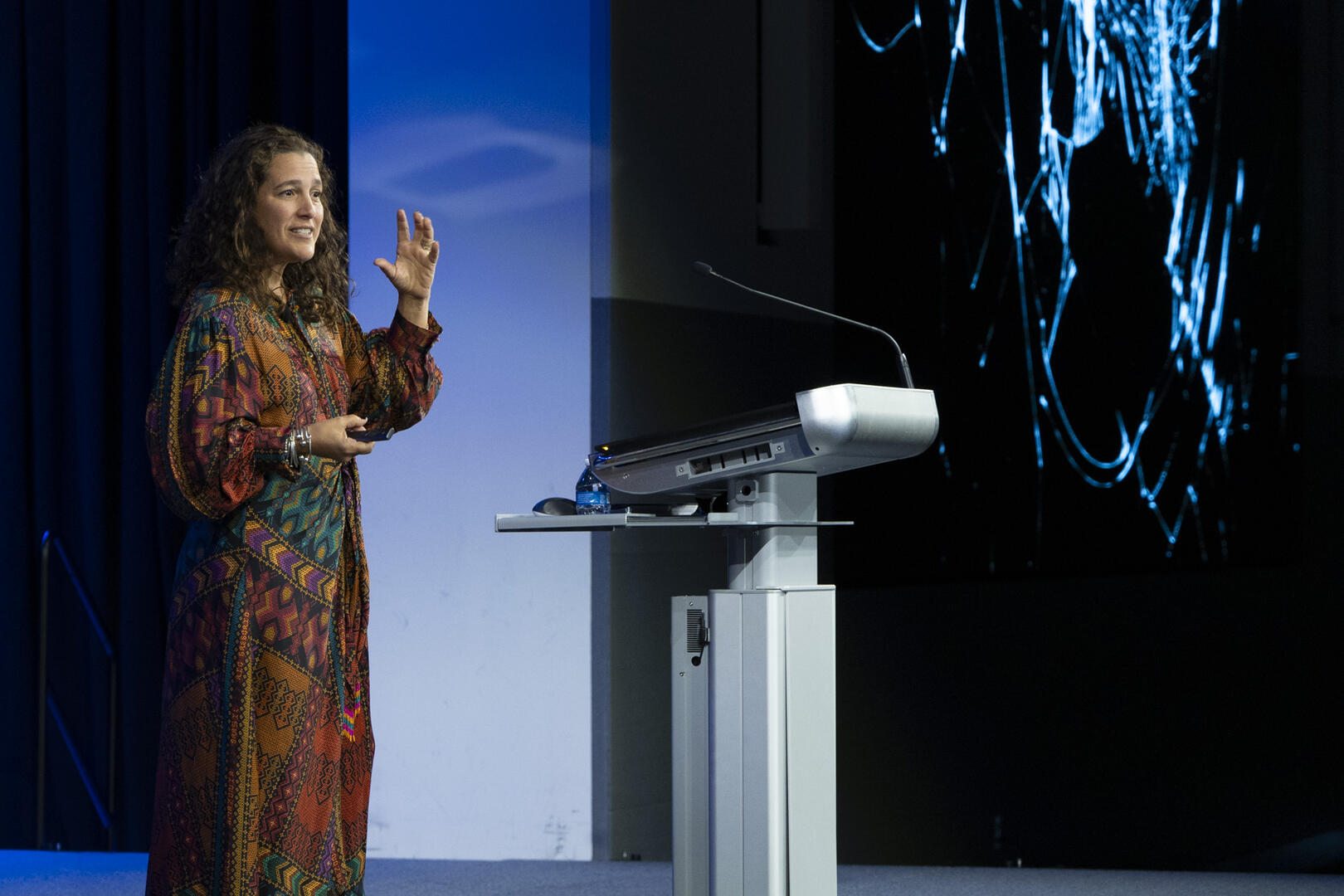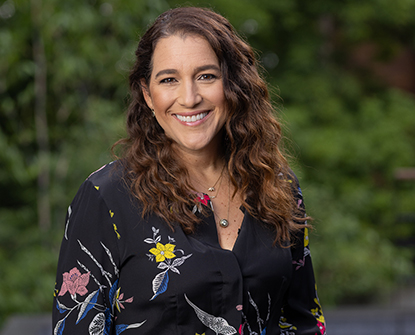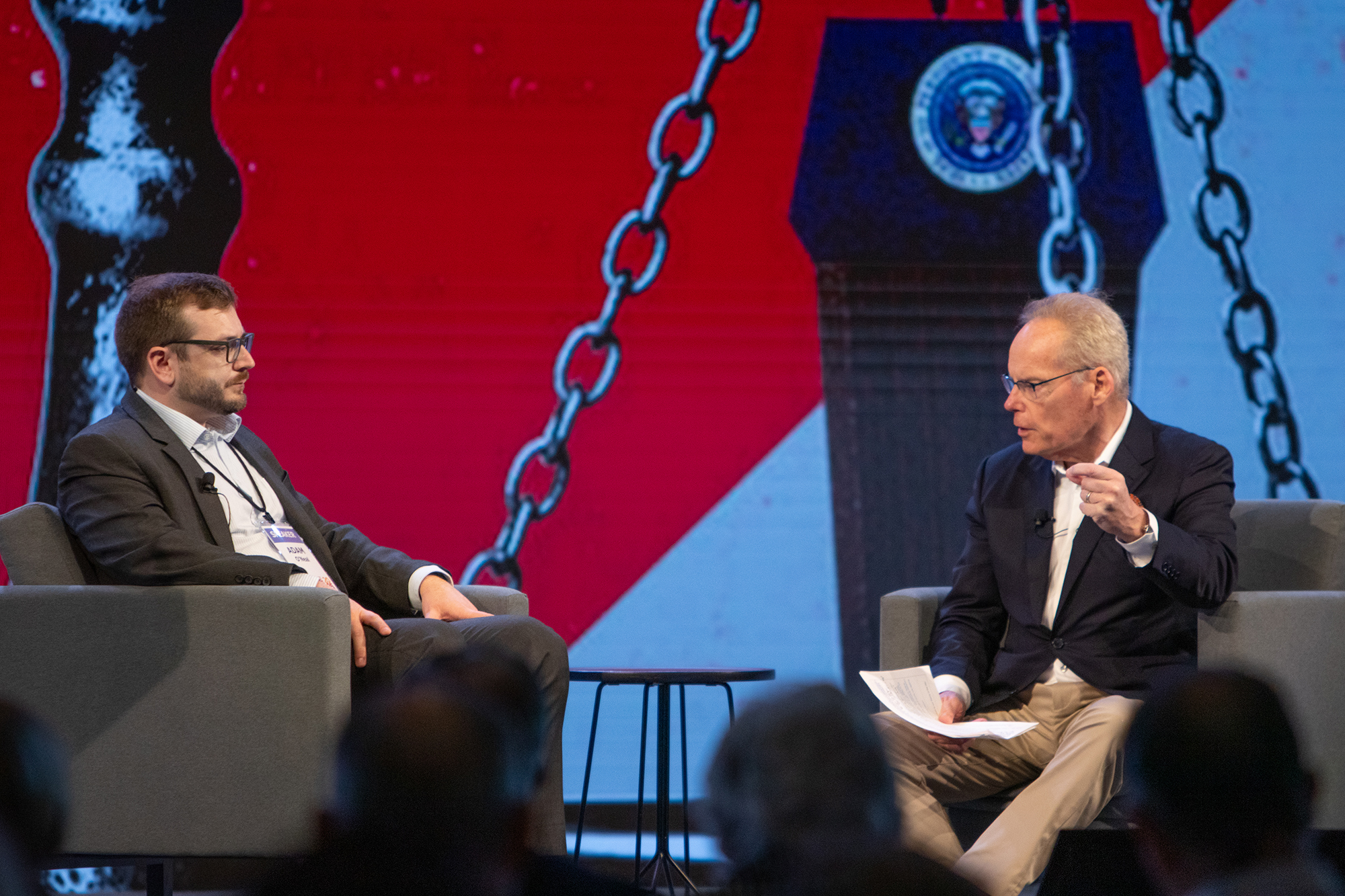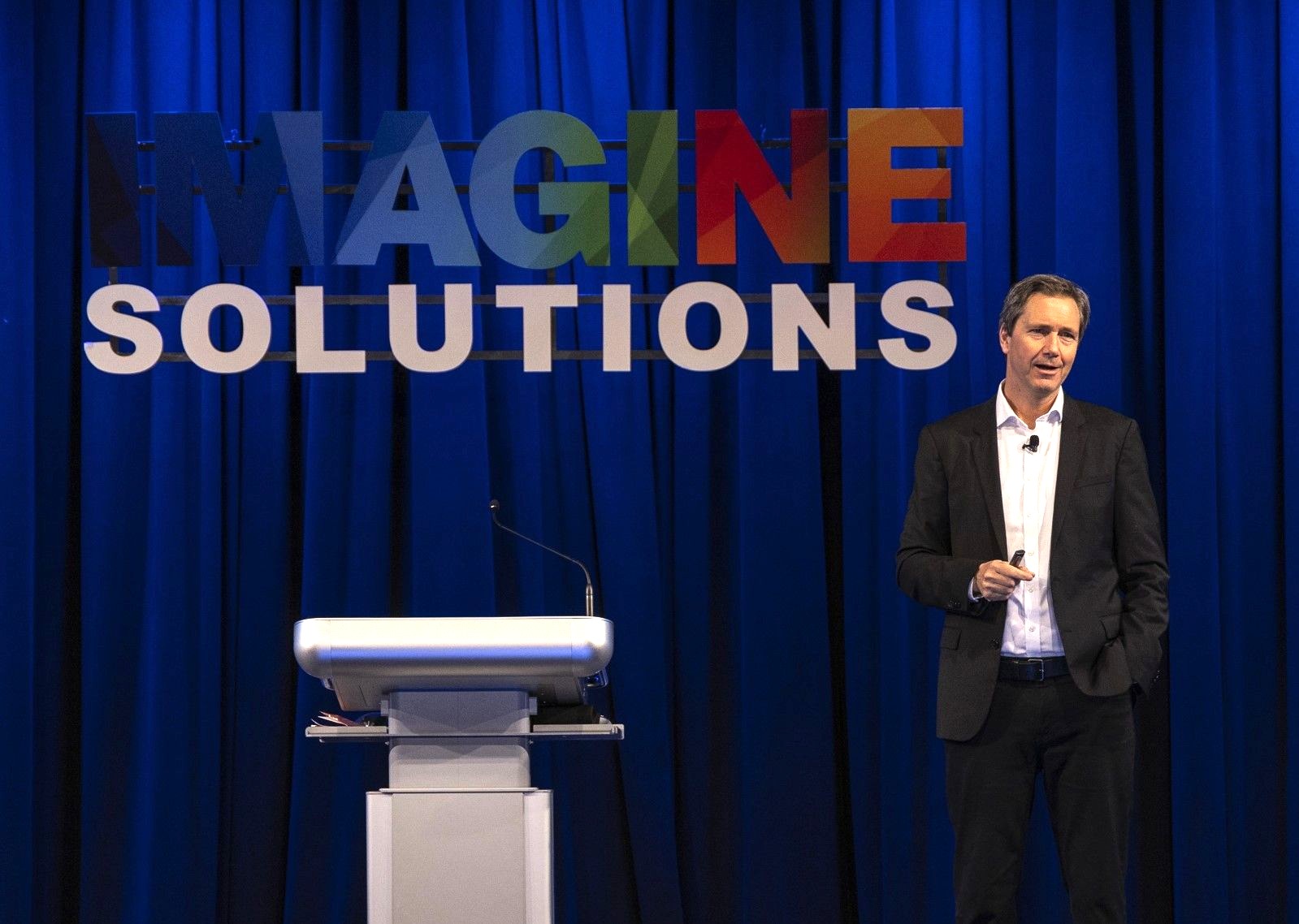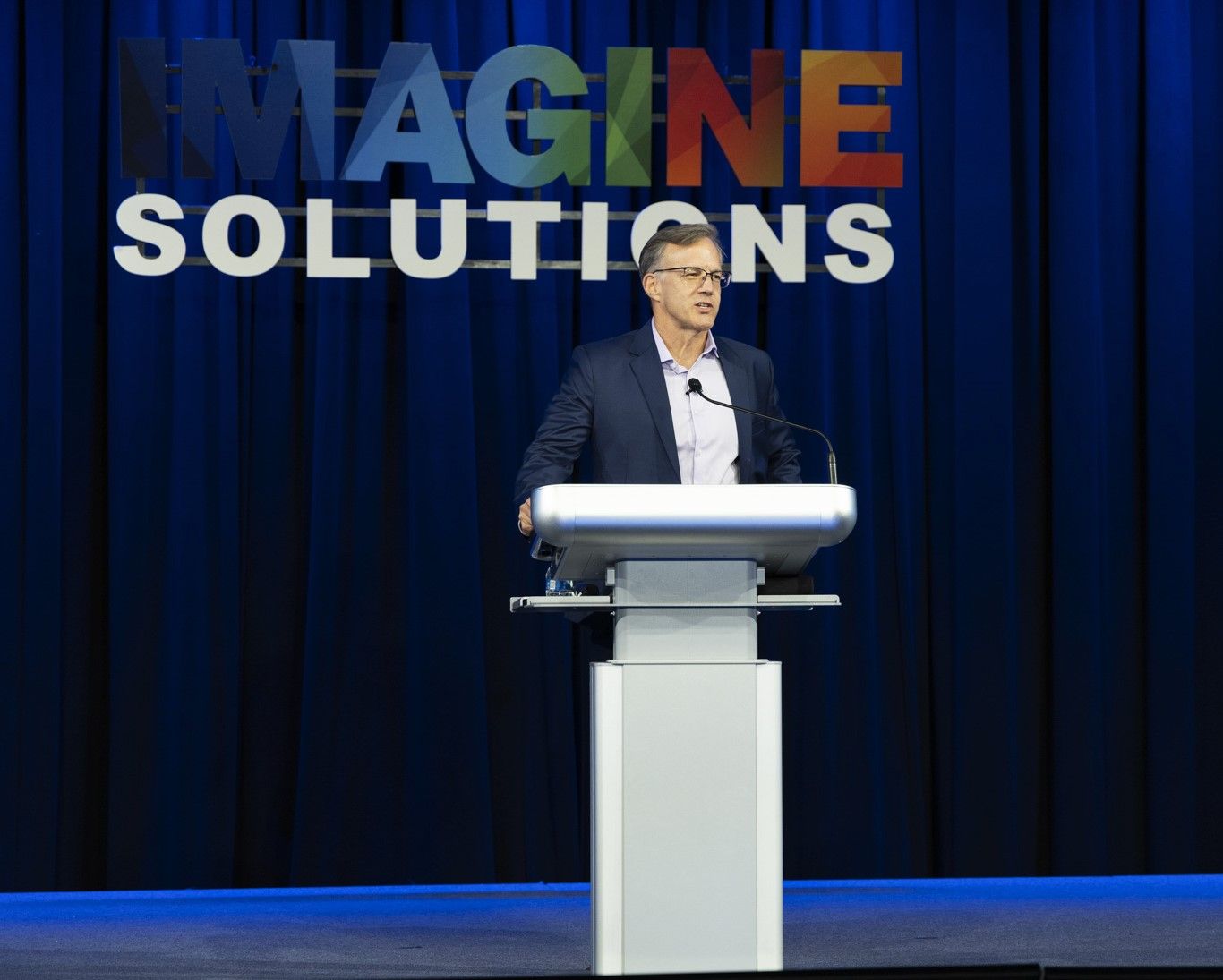Mental Health and Violence Prevention
00.00
[Music] [Music] now it is time for the big finish and Selena DOA is the big finisher she's positively impacted more than 1.5 million lives since 2007 her nonprofit glass Wings addresses education programs and health and mental health programs she's a winner of the skull social entrepreneurship award in 2020 the first Latin American grantee of the audacious project 2021-22 that addresses the root causes of poverty violence trauma and migration in the Americas she's here today to talk about unlocking the potential and peace in communities throughout through improved mental health Selena DOA creates opportunities for children please welcome her to the stage
01.03
Selena thank you so much good [Music] luck hi everyone thank you for sticking around I'm the last one here and really excited and honored to be here I'm here to talk about basically how if we amplify access to mental health we really can unlock potential and we can interrupt cycles of violence that we're seeing in so many communities around the world and hopefully sustain Peace A lot of people might not know this but Latin America is home to only 8% of the world's population but about a third of its homicides so this is especially extreme in certain countries and countries in Central America the region that I'm from and imagine what this can mean right for individuals and communities to be exposed to this kind of unrelenting violence especially because if we're
02.01
exposed to violence this can result in trauma and when that happens our brain stress response shuts down some of our core functions like problem solving critical thinking emotional regulation and then it has to elevate the ones that we need to protect ourselves and survive so this makes it hard for us to learn for children for adults for all of us to learn to make decisions to maintain relationships and so many communities and I'm sure you can think of many so many individuals now are facing more and more and perhaps we're talking about it more stress anxiety depression among young people so we have to consider what happens when this individual and Collective stress and Trauma Collide in our societies so I'm from El Salvador and for the past 18 years we co-founded 18 years ago this organization um that does basically we
03.00
what we do is we try to keep kids away from violence and enable them to thrive and we do this through different kinds of programs and schools and communities and we also do evaluations and we you know I'm not a scientist like most of the people have spoken today but we do a lot of research with the World Bank and other partners to make sure that what we're doing is actually generating the impact we want or when it doesn't also share this information with policy makers and our peers um and and we have now we're working in 12 countries we have about 700 employ employees and thousands of volunteers so it's really exciting um but before we started glass swing um that's me in the middle even though I kind of look like the girls around me at the time it was a while ago um before starting glass swing I was actually a humanitarian Aid worker and my focus was leading responses to crises in countries like Afghanistan Iraq the DAR War crisis in Sudan and other locations that were facing really really extreme adversity and I had to say the
04.00
learning curve was unbelievable right and the people that I'd come across teachers healthcare workers Community leaders every day and I was in my 20s every day was this incredible learning curve and um just exchanges that really taught me a lot um about just people um about resilience about hardship um but I I think I want to share two um experiences that stand out because they're kind of what got me thinking more about grief and about loss and about trauma so this is a picture I took um in Liberia I was working there in 2003 right after Charles Taylor was oued and the UN was working to De demobilize and rehabilitate and reintegrate child soldiers um and I I do remember one of the kids that I was speaking to a teenager he was holding and they were bringing their weapons to kind of give them back um or hand them in as part of this process and I remember he just he was we were talking and he's like you
05.01
know this this gun is everything I have this gun is my mom it's my father H it gets me food and it keeps me safe right so you know those things that really stick with you and and one of my trips here you know I think that the subsequent trip I took we were taking a drive with Dr Sando he was a physician one of the few Physicians that had stayed in Liberia and it was in kind of a similar context and we were driving out from Monrovia there were the peacekeeping troops weren't outside of Monrovia at the time and we drove out um to see a hospital that had been destroyed and about an hour and a half out and the roads were all covered in Vines and grass and about an hour and a half in we got waved down by these child Fighters right child soldiers and they were like little kids it's like little kids playing War almost it was this crazy scene right one of them even had a an RPG a rocket propelled grenade just
06.02
holding it um and they waved us down and they stopped us because at the time they were kind of controlling the different territories um so the the Liberian gentleman who was driving us he was right in front of me stopped the car and stared Straight Ahead he didn't make any eye contact with these young kids and one of them comes up to my side the window I was right behind the driver and kind of TAPS my window with his weapon like tap tap and of course my immediate reaction was to open the window and engage I didn't want to ignore him I didn't want him to feel like I was ignoring him so I roll down the window and then he gives me the you know the Liberian handshake which has like a snap at the end it's just um kind of a really friendly handshake and he says do you have a Siggy and I was like I don't luckily I knew what a sigy was like I'm sorry I don't smoke um I don't have any sorry about that um but I did talk to him and he's like all right no problem and then he kind of shrugged and walked
07.00
back to the other group and they couldn't have been older than 17 right they were all different ages so he walks back and um a few moments later they let us pass and then the driver after we passed he looks in the rearview mirrror and he's like don't ever do that again don't ever do that you could have gotten all of us killed so of course I haven't stopped thinking about that for the past 20 years because you're you know you're like you know I could have gotten all of us there were four of Us in the car killed and it's only after I learned after many years of of studying trauma of studying mental health that I learned that we were reacting based on you know the reactions we had were based on our experiences in life right so his experiences and the reason he was silent and not engaging is because the experiences he has had he had had before in this context led him to understand that if he engaged it would be more
08.00
risky than if he stayed quiet and I was reacting based on my experiences and and I also felt threatened we both felt threatened but my reaction was based on my experiences in my life and how I had engaged before in situations of risk or not so it was almost like reflecting on on this same exact situation two people in the same situation two totally different reactions and I think you know obviously I hadn't been living through you know decades in Liberia of of brutal violence and conflict and I think um just thinking about the interplay of your survival instincts your fight flight freeze and then kind of your rational being right your rational thinking so much of that is you know your reactions are really a a a combination of all these things you've experienced in your life um it's like they're dictated by the sum of our experiences and you know I have to say
09.00
I'll never understand what he went through what he goes through um but it did make me reflect really deeply it's obviously really humbling um and and I did start to wonder that every trip every place I went to uh you know as we were running around as humanitarian Aid workers doing our best to get humanitarian Aid there medical relief shelter vaccines whatever it is we had to do were we considering and this is 20 years ago obvious obvously things have changed but at the time were we actually asking anybody what it is they needed for their well-being like did we ever stop to think about I know we yes we need this to keep people healthy but what it is what is it that people need for their well-being and and I think that we probably weren't right we probably weren't asking that like what they needed because we weren't leaving space for them to process or cope or heal a year later um we uh now it's 20 years right A year
10.02
later the tsunami happened and I was deployed to Bacha which was the hardest hit part of the world um by the tsunami and you know it it was one of the most intense experiences to see that boats and ships on top of buildings um so much lost life and I remember we had to hire so many people to offload plane loads and pl L loads of humanitarian Aid and in that emergency people had died or they had survived there wasn't as much injury or infectious disease as we all had expected so we were hiring all these people to help us and a lot of these people had lost their families and one of the gentlemen who was living in the house that I was staying in one day of course we couldn't communicate but he takes out a little tiny picture from his wallet and through sign language and body language and expressions he basically was telling me that he had
11.01
lost in a matter of hours his entire family and everything he knew to be normal you know and I and I I never I do I think about him all the time and I think about his face which wasn't so different than this gentleman who I also met and at the time the organization I was working for was really worried about PTSD we you know that then we were like okay everybody probably has PTSD and they wanted to send clinicians to treat PTSD right they wanted to send clinicians from the US um and and I remember thinking again it was one of those moments where you're like but but is this what we need is this what people need um do people need clinicians why are we medicalizing a very normal reaction to something completely out of the ordinary um so you know needless to say they ended up not sending clinicians but at the time that was something that was really coming up a lot and I just remember thinking I maybe he just wants to go to the mosque right and reconnect
12.01
with community and pray and recover that way so I wanted to do more personally I wanted to learn more um and after that uh emergency I actually left the field of humanitarian Aid and got more into development work um so we started the organization almost 20 years ago and we've been working in Latin America a region that's been plagued by violence right I'm sure you've read about it in the news you've probably met people or you are from the region um and we have seen how this chronic violence and Collective trauma really um damages the social fabric it it like affects trust and it also breaks down the very networks that you need for communities to be resilient I mean we've seen that in communities affected by violence not only what I said earlier that the way we interact becomes different right because it's the sum of our experiences the way we interact with each other but what we're taught to fear like what how how
13.02
we we try to protect ourselves how do we deal with threats so perhaps joining a gang isn't because I want to join a gang it's because I'm threatened so by joining a gang I'm going to somehow be protected um so all of those things that are accumulation of our experience is what a lot of the young people in our countries face and deal with and manage and many of them get involved in lives of crime because they've also survived violence many of you may have heard the expression hurt people hurt people right um and that's you know really important to think about when we're thinking about mental health and violence um and and then but we've also seen the other side the kind of the flip side of the coin that how young people can come together or how they can make that decision to not vindicate violence or not perpetuate violence um we had a student that was really surprising to me um so many situations but this was so extreme he had just witnessed lost his mother to
14.00
violence um and he was there he witnessed it and so many kids would have this reaction protective reaction that can become violence right to to um have you know take revenge um and and avenge his mother's death and in his case he he did the exact opposite the next day he just wanted to get back to his school he wanted to connect with his mentor he wanted to connect with a soccer team to just seek that support and we've seen that with girls and networks of women and girls and mentors this human connection really helping you cope as opposed to perpetuating that violence or even young people that understand trauma be able to support other people particularly their peers who are feeling hopeless or giving up or or even like considering ending their own lives so that flip side is what what we think we can really perpetuate and scale so both science and experience has
15.01
shown us that that healing the conflict within us can help us resolve the conflicts around us so we can interrupt cycles of violence if we deal with the underlying stress and Trauma by providing better access to Mental Health Care the problem is we don't have enough mental health professionals right trained professionals psychiatrist psychologists social workers in the us there are about 300 for every 100,000 people in Honduras there are two for every 100,000 people but what if we reimagine how we can do this what if we reimagine who can be part of this effort to provide better access to mental health support and we can you know people are doing it and this is this is happening this is starting to happen more and more um we were um you know we're so grateful we were awarded funding from the audacious
16.01
project under Ted and this has enabled us now to train we're training a 100,000 to start existing government employees so teachers healthcare workers police officers we're training them on trauma education and also self-care so they can recognize and manage the stress that they're facing stress and Trauma the effects of that on themselves on the people they work with their peers and also on those they serve so we're essentially trying to create this whole core of lay mental health workers who are already serving on the front lines and can step in and buffer the impacts of trauma and stress on themselves on their peers and on their communities we've seen in our Hospital programs and here you can see a picture of the trained some of the trained doctors that by intervening for example if someone's coming in with a gunshot wound or a stab wound we're able to reduce the likelihood of revictimization by up to
17.00
30% so aside from the human impact we also reduce health care costs we also know we work with law enforcement the police officers have reported 90% of them feel that they can better manage their emotions their cope with kind of the anxiety the stress um the depression and 80% of them told us that they feel like they can also do that more for their peers this is a picture from one of our schools and where we've seen that just having that caring adult I mentioned relationships earlier having a caring adult figure and this may seem like it's so simple it's right in front of us it is but it's profound and their science demonstrates how impactful it is right to have a caring adult in your life and what that translates into not just the well-being but also improved grades improved conduct School retention resilience so we're basically trying to saturate communities right with mental health support that's provided by
18.00
regular people they don't need to be CL clinicians we don't need to be clinicians so we're talking about community and we're talking about systems change at the same time leveraging resources that are already there and I think what what excites us the most about this when we're working on it is that this can be easily replicated and scaled right it can be replicated in almost any context in almost any country and also the people that you're training are also benefi from the training for their own daily daily lives the thing is that violence does happen between people but healing does too right that's where it starts it starts between people so the power actually lies in people and in relationships in communities healing themselves one of my favorite books I I always mention him because I I love
19.00
Victor frankl's book man search for meeting I don't know if any of you have read that or many of you yes yes so um and I I love this quote he says between stimulus and response there is a space in that space is our power to choose our response and in our response lies our growth and our freedom what we want to do is to flood that space in between stimulus and response with mental health knowledge skills and tools so individuals and communities so we can all pave our own way to healing and resilience thank you so much thank you to Randy and thank you to [Applause] everyone

